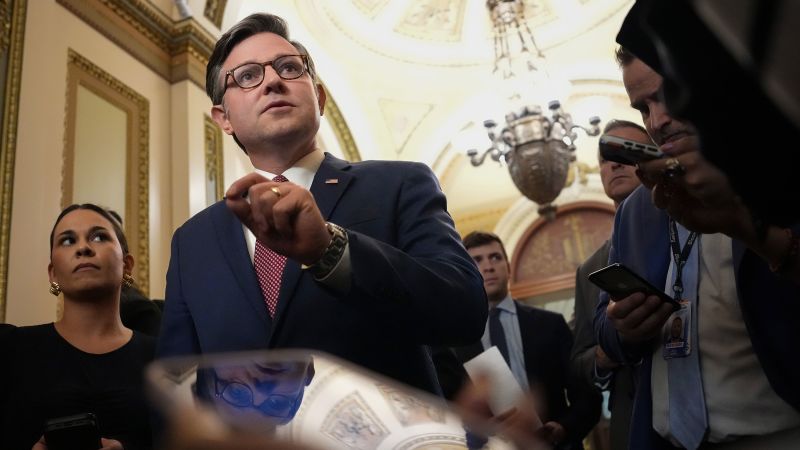A troubling situation is unfolding in the United States regarding a provision hidden within a substantial tax and spending cuts package in the House of Representatives. More than 100 organizations, representing various sectors of society, are expressing serious concerns about a rule that could severely restrict the ability to regulate artificial intelligence (AI) systems. This contentious provision, included in President Donald Trump’s comprehensive legislative agenda, stipulates that states would be barred from enforcing any regulations related to artificial intelligence models, systems, or automated decision-making technologies for a period of ten years if it passes.
As artificial intelligence continues to evolve and infiltrate numerous aspects of life—ranging from personal communication and healthcare to hiring practices and policing—these organizations have raised alarm bells, indicating that a prohibition on state regulation could lead to detrimental consequences for both users and society at large. They have communicated their fears in a letter directed to key congressional figures, including House Speaker Mike Johnson and House Democratic Leader Hakeem Jeffries, endorsing the idea that a moratorium on state regulation could leave companies unaccountable for potentially harmful practices.
The letter articulates that if a company intentionally designs an algorithm that leads to foreseeable harm, it would face no consequences if this provision takes effect. This suggests a significant pivot in the relationship between technology companies and government, one that could undermine accountability and oversight over AI technologies that have pervasive impacts on daily life.
The legislative package faced an important vote when the House Budget Committee approved it. However, as it proceeds through further voting procedures within the House, the concerns voiced by these organizations linger in the background, highlighting a growing apprehension regarding the future of AI regulation.
Notably, among the 141 signatories of the letter are esteemed institutions, such as Cornell University and Georgetown Law’s Center on Privacy and Technology, as well as advocacy groups like the Southern Poverty Law Center and the Economic Policy Institute. Employee groups, including Amazon Employees for Climate Justice and the Alphabet Workers Union—representing Google parent company workers—also added their signatures, emphasizing a widespread anxiety concerning the trajectory of AI development.
Emily Peterson-Cassin, the corporate power director at the non-profit Demand Progress, which organized the letter, indicated the provision serves as an unwise concession to major technology executives. She called on leaders like Speaker Johnson and Leader Jeffries to heed the voices of the American populace rather than being swayed by corporate influence and campaign contributions from the tech industry.
This letter of concern coincides with Trump’s actions to roll back several federal AI regulations that had been implemented during President Biden’s administration. Recently, Trump nullified an executive order that aimed to offer standardized protections concerning artificial intelligence, demonstrating a clear shift in the federal stance on regulatory measures in the tech sector. Furthermore, he has expressed intentions to eliminate restrictions on the export of essential AI chips, a move that aligns with the broader goal of maintaining U.S. superiority in the competitive global AI landscape, particularly against China.
The Vice President JD Vance indicated during the Artificial Intelligence Action Summit that he believes excessive regulation could stifle an industry with transformative potential, suggesting a preference for minimal regulation that allows for growth. In contrast, states have begun to step up, imposing regulations on various AI applications in the absence of clear federal guidelines. For instance, Colorado enacted an AI law aimed at preventing algorithmic discrimination, and New Jersey penalized misleading AI-generated deepfakes.
Despite this emerging patchwork of state laws, there seems to be a consensus across party lines that certain AI applications warrant regulation. Upcoming legislation, notably the Take It Down Act, which seeks to ban the distribution of non-consensual AI-generated explicit content, showcases bipartisanship on the need for suitable restrictions, diverging from the broader preemption proposed in the budget bill.
In a climate where voices like OpenAI’s CEO Sam Altman advocate for regulatory frameworks to mitigate the risks associated with powerful AI models, the current provision poses a stark contradiction to the push for accountability. Altman emphasized the necessity for clear legal guidelines that permit AI companies to operate effectively within well-defined parameters. With such a transformative technology at stake, the debate over regulation will undoubtedly continue to unfold, representing a crucial intersection of innovation and ethics in American democracy.



